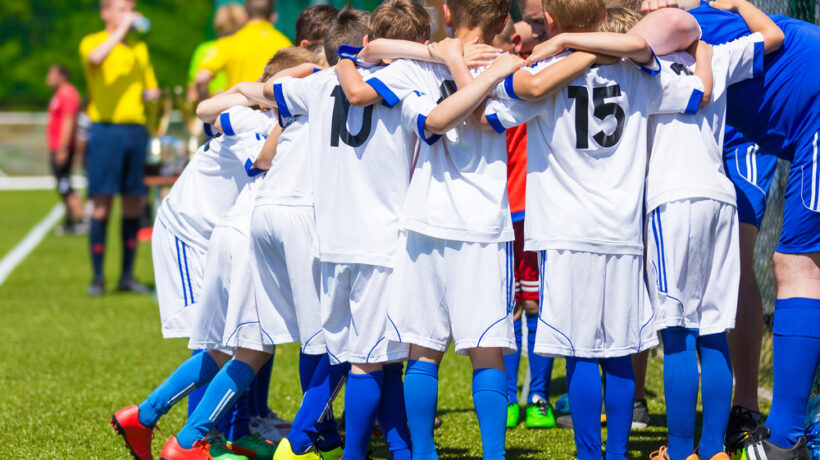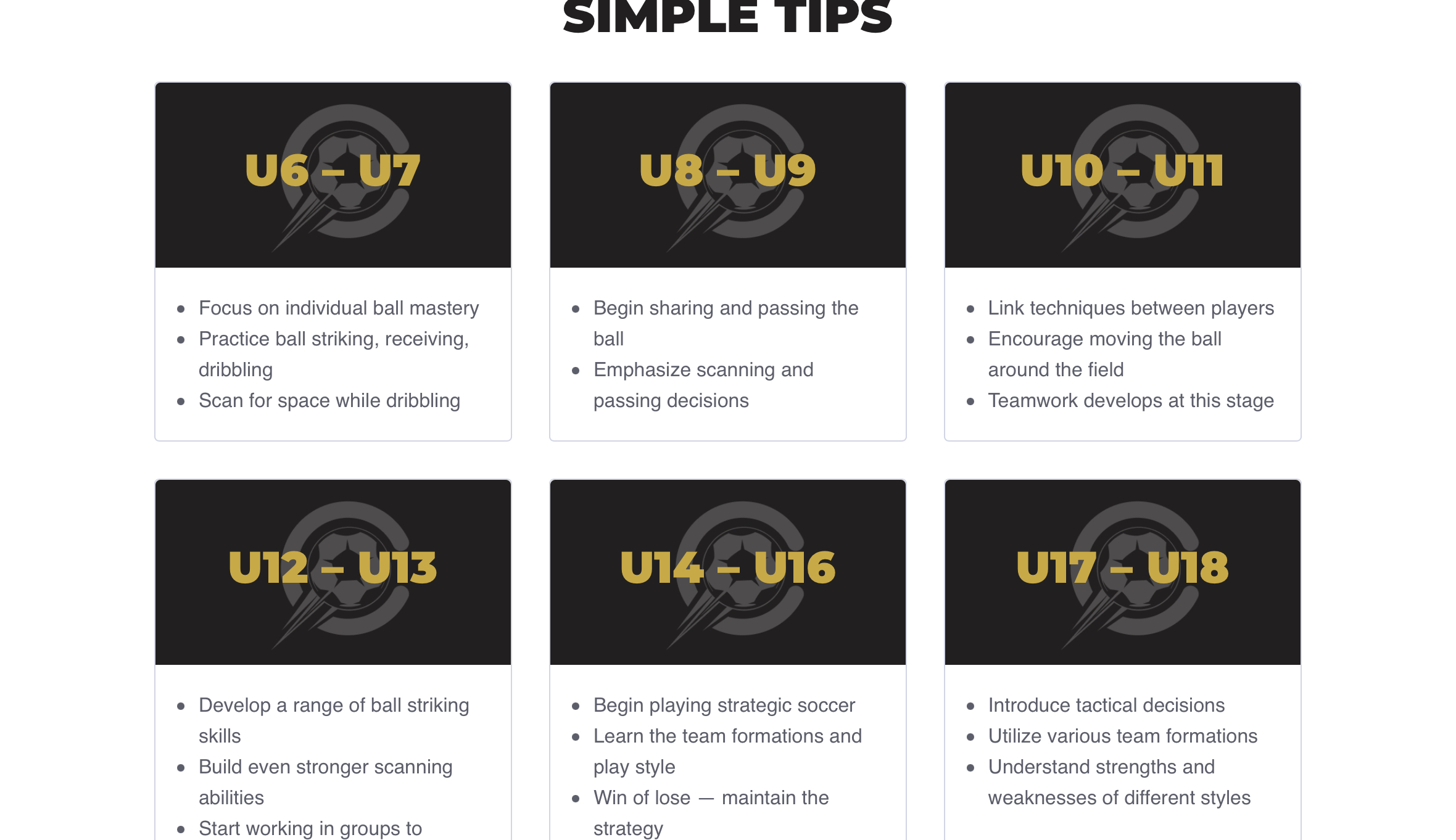
Firstly there has to be one consistent strategy across every age group we coach…
DEVELOP RELATIONSHIPS
This has to be a theme to us as coaches. Not one player we coach, whether 5 or 50, wants to come and be bored, shouted at, disrespected. Our responsibility is to connect with the players we coach. We have to get to know our players on a deeper level, understand their likes and dislikes, what motivates them and most importantly what they need to perform well. Only then can we effectively teach, coach or inspire our players in the beautiful game.
The above shows why it is so vital to build relationships with our players. Once you’ve achieved that, there are some specific strategies we can use at each group. We have given some bullet points to help with these with our “Get started for beginners” section. You can click here to have a look at them, but let’s go through them in a bit more detail.

U6-U7 (and below for those coaching younger!)
These are the key ages for developing a relationship with the ball. Players are naturally selfish because they are still trying to get an understanding of how the ball moves. Steer into this with our coaching, develop ball mastery and skill, encourage players to take touches. Don’t force a pass but instead encourage scanning and players identifying when they need help to ‘share’ the ball with their teammates. The word ‘share’ is key. They will hear it so much at home and school with toys, food and so much more that they will understand it. This will also help with their scanning skills
We also have an ideal time to work on range of movement skills by working on players’ agility and changes or direction. Tag games and games for learning are great ways of doing this.
The final and potentially most vital part of coaching these age groups is enjoyment. These players are only just starting their football journey. The focus on enjoyment and developing a love for the game is vital because we don’t want to turn players off so quickly when they are just starting. Experiment with playing in every position, sharing game time with everyone and most importantly demonstrating good personal skills not just good footballer.
U8-U9
As players come into these age groups, they will understand that teammates are a massive help and will be sharing the ball more. Start linking 1v1’s to small sided games here – 2v2s, 3v3s up to 5v5s. These are great formats to emphasis scanning as well as linking evasion skills with and without the ball to making decisions to pass and dribble in various situations.
Rotating positions and fairly distributing game time is all essential to ensure players still want to continue playing the game when they become older. It also develops an all round understanding of the game which will benefit them as they get older.
U10-U11
Players should enter these age groups having had lots of sessions designed around ball mastery and small sided games that allow for scanning and decision making elements. Therefore the considerations in these age groups are to continue to build on that. Game formats in these groups increase meaning there will be more players that will create defending, midfield and attacking units.
This is where our focus starts in these age groups – developing a players understanding of units and linking 1 unit to the next. This is crucial for players to develop the next element of teamwork. This not only helps their football but should be linked to being a good person off the pitch too.
U12-U13
Players have worked out previously how to link 2 units together and now we start with developing a players’ ability to link all units together. We can do this during these age groups as increased power allows for longer ball striking, bringing in practices that involve lofted passes, direct switches of play, crossing and aerial control. This can be incorporated into sessions on bigger areas and with more players.
The other consideration in these ages is the growth of early developers. Players will start to experience growth, which will effect co-ordination of their limbs and therefore technical play. It is vital that coaches support players through this part of their lives. Enjoyment is a massive part of why they play and whilst girls will develop earlier than boys, it is expected that these age groups could see the start of some players having confidence issues. This is vital to manage effectively by coaches to maximise enjoyment of the players you coach.
U14-U16
As players enter these age groups (as with some early developers before) remember that the vast majority of players will experience growth. This could cause injuries but will effect the players co-ordination and potentially their technical attributes. It’s important to still help these players and be supportive during these times.
However players will likely play the majority of their football in 11v11 and will therefore need support in learning formations. Experimenting with various systems and strategies will give players a great understanding of the game and how different formations work. They can also experiment with different pictures – i.e. 2 strikers vs 1 striker, 3 centre backs vs 2 centre backs, diamond midfield vs box midfield, etc. – which will help them as they progress in their football.
For players in these ages, it is important to teach them strategies on how to win or how not to lose. This doesn’t come automatically but discussing ways of recognising how to stay in a game when an opposition team is playing well or turning the momentum into your teams favour is a vital learning tool. These age groups are a great place to do this learning.
U17+
As players enter U17 and older the focus will switch to performing to win and playing in a way to solely win games. Players will often not share game time or will be picked by managers or coaches based on who will win them the game. This is obviously a part of learning for players on how to cope with not playing or being selected. If coaches remember what we said at the start (the importance on developing relationships) these situations will be handled well, with not only honesty but importantly respect.
Coaches must remember even as adults, players still have opportunity to learn, improve and develop their game understanding as well as their technical and physical areas. This is key to not only get their messages, style of play and tactics across to players but also to make players feel wanted and important.
Conclusion
Hopefully the above gives coaches support in terms of what would be considerations for coaching at various age groups through a players journey. Check out our season plans as well for specific sessions you can do with various age groups by clicking here. It’s important to remember that enjoyment should be present the whole way through a players journey at every age but the reasons to gain enjoyment may change. However the constant that remains is developing connections and relationships with players. Only then can you coach effectively at any age group.